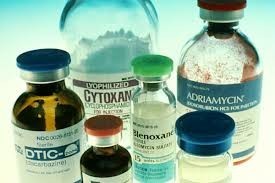Canada-based Apobiologix, a division of Apotex, reported results of an international, phase III, randomized, double-blind clinical trial to demonstrate biosimilarity between the Apotex pegfilgrastim biosimilar (Apo-Peg; Lapelga) and reference product Neulasta (Amgen) [1].
Pegfilgrastim is a long acting granulocyte colony-stimulating factor (G-CSF) requiring only once-per-cycle administration which offers greater convenience compared to daily filgrastim. G-CSF agents are used to reduce the complications of chemotherapy-induced neutropenia, which is associated with a high risk of morbidity, mortality, hospitalization and reduced or delayed chemotherapy dose.
Lapelga is a pegfilgrastim biosimilar currently approved by Health Canada, and the European Medicines Agency ([EMA] approved as Pelgraz, Accord Healthcare). Lapelga was the first pegfilgrastim biosimilar approved in a highly regulated market. Demonstration of biosimilarity was based on the totality of evidence, which included comparative analytical assessment and confirmatory clinical studies between the proposed biosimilar and both the US-licensed and EU-approved reference biological.
A total of 56 investigational centres across 11 countries treated 589 early stage breast cancer patients. Patients were randomized 2:1:1 to receive either the proposed pegfilgrastim biosimilar (n = 294), the US-licensed pegfilgrastim (n = 148), or EU-approved pegfilgrastim (n = 147). Patients completed an 18-week active treatment period consisting of 6, 3-weekly cycles of TAC chemotherapy (docetaxel 75 mg/m2, doxorubicin 50 mg/m2, and cyclophosphamide 500 mg/m2) followed by a safety follow-up period of up to 30 weeks. The primary endpoint was the duration of severe neutropenia (DSN) in Cycle 1, defined as absolute neutrophil count (ANC) below 0.5 × 109/L. Secondary endpoints included the rate of febrile neutropenia (FN) and ANC nadir. The primary endpoint was based on the difference in means between the proposed pegfilgrastim biosimilar and the US-licensed or EU-approved pegfilgrastim reference product for DSN in Cycle 1 with a 95% confidence interval (CI) within an equivalence margin of −0.5 days, +0.5 days.
Results showed that the mean DSN was comparable across all three treatment arms to meet the study’s primary endpoint. The As-Treated analysis population demonstrated a 95% CI that was not outside the equivalence range for the proposed pegfilgrastim biosimilar with the US-licensed and EU-approved pegfilgrastim reference products. The mean DSN for the Apo-Peg group was 1.6 days (95%CI 1.46 to 1.77 days) for a difference in means between the US and EU approved pegfilgrastim of 0.2 days (95%CI -0.04 to 0.50 days) and -0.01 days (95%CI -0.29 to 0.26 days), respectively. A difference of 0.2 days (95%CI -0.07 to 0.56 days) was observed between the US and EU-approved pegfilgrastim products. Depth of ANC nadir, time to ANC recovery post-nadir, and rate of FN demonstrated no significant differences between treatment groups. The incidence of adverse events was similar across treatment arms with no unexpected safety events reported.
The authors concluded that the proposed pegfilgrastim biosimilar is highly similar to Amgen’s US-licensed and EU-approved pegfilgrastim reference products with regard to the clinical efficacy and safety endpoints investigated in this confirmatory clinical study.
Conflict of interest
The authors of the research paper [3] declared that there was no conflict of interest. However, all authors are employees of Apobiologix Canada/USA, they also declared that this study was supported by Apobiologix.
Abstracted by Dr Robert Lalley and Brandt Newcomer, Medical Science Liaisons, Apobiologix.
Editor’s comment
Readers interested to learn more about pegfilgrastim biosimilars are invited to visit www.gabi-journal.net to view the following manuscript published in GaBI Journal:
Perspectives on the future of pegfilgrastim biosimilars
GaBI Journal is indexed in Embase, Scopus, Emerging Sources Citation Index and more.
Readers interested in contributing a research or perspective paper to GaBI Journal – an independent, peer reviewed academic journal – please send us your submission here.
Related article
Biosimilars of pegfilgrastim
Reference
1. Desai K, Misra P, Kher S, Shah N. Clinical confirmation to demonstrate similarity for a biosimilar pegfilgrastim: a 3-way randomized equivalence study for a proposed biosimilar pegfilgrastim versus US-licensed and EU-approved reference products in breast cancer patients receiving myelosuppressive chemotherapy. Exp Hematol Oncol. 2018; 7:22. doi:10.1186/s40164-018-0114-9.
Permission granted to reproduce for personal and non-commercial use only. All other reproduction, copy or reprinting of all or part of any ‘Content’ found on this website is strictly prohibited without the prior consent of the publisher. Contact the publisher to obtain permission before redistributing.
Copyright – Unless otherwise stated all contents of this website are © 2018 Pro Pharma Communications International. All Rights Reserved.








 0
0











Post your comment